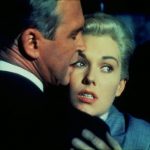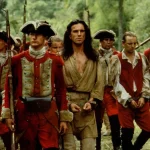Robin Hood (2010)

Robin Hood (2010)
Robin Hood (2010), starring Russell Crowe as the legendary outlaw, offers a gritty and realistic take on the classic tale. Rather than portraying Robin as the established hero of Sherwood Forest, the film presents a reimagined origin story, exploring his transformation from a common archer to an outlawed folk hero. Here’s a deep dive into the most notable aspects of this ambitious retelling:
A Gritty, Historical Approach: Ridley Scott’s Robin Hood takes a more grounded approach, setting the film in a realistic 12th-century England. Instead of a fantastical or romanticized version of the story, Scott focuses on the harshness of medieval life, political tension, and the brutality of warfare, creating a darker, more mature tone.
The Origin of Robin Hood: Unlike traditional adaptations, Robin Hood acts as an origin story, portraying Robin as an archer in King Richard’s army. After the king’s death in battle, Robin assumes the identity of a noble knight, Robert Loxley, and returns to England, where he discovers corruption and oppression under the rule of King John. This fresh approach presents Robin’s evolution from a simple soldier to a rebel champion of the people.
Russell Crowe as a Hardened, Brooding Robin: Crowe’s portrayal of Robin is serious and introspective, more in line with his performance as Maximus in Gladiator. This Robin is a veteran warrior disillusioned by war and injustice, making him a more somber and less playful figure than past portrayals. While some audiences missed the charming rogue version of Robin, others appreciated Crowe’s intense, warrior-like approach to the character.
Cate Blanchett as Lady Marion: Lady Marion, played by Cate Blanchett, is reimagined as a strong-willed, capable woman who manages her late husband’s estate in Robin’s absence. This Marion is no damsel in distress; instead, she’s fiercely independent and even takes up arms to defend her home, aligning her character with the film’s grounded, serious tone.
Exploration of Political Intrigue and Rebellion: The film weaves in complex political themes, focusing on England’s struggles under King John’s tyrannical rule and the tension between the monarchy and the people. It examines the roots of rebellion, with Robin’s actions helping to inspire the oppressed to challenge authority. This political dimension adds depth, though it also makes the plot denser and more complex than the traditional Robin Hood narrative.
Epic Battle Sequences: True to Ridley Scott’s style, Robin Hood includes large-scale battle scenes reminiscent of his work on Gladiator and Kingdom of Heaven. The climax, a massive showdown on the English coast against French invaders, is filled with well-choreographed action, practical effects, and gritty realism. The battle scenes stand out for their grounded depiction of medieval warfare, with intense hand-to-hand combat and strategic maneuvers.
Focus on Taxation and Social Injustice: The film emphasizes Robin’s fight against oppressive taxes and the corrupt officials enforcing them, highlighting the socio-economic injustice faced by common people. This reflects the real historical struggles of medieval England and gives Robin’s mission a more specific political purpose, tying it to issues that still resonate today.
Reinterpretation of Familiar Characters: Traditional figures like Little John, Will Scarlet, and Friar Tuck appear as members of Robin’s band, but they are portrayed with more realism and less of the joviality seen in classic adaptations. These characters are rough-around-the-edges, hardened by battle, and contribute to the story as grounded companions, reinforcing the film’s serious tone.
Ambitious but Divisive Reception: Robin Hood received mixed reviews, with some critics appreciating its ambitious attempt to reinterpret the legend, while others felt the film’s tone and complex political plot detracted from the adventurous spirit typically associated with the character. Fans of Ridley Scott’s epic style and those who enjoy realistic historical dramas praised the film, while traditional Robin Hood fans missed the lighthearted swashbuckling of earlier versions.











